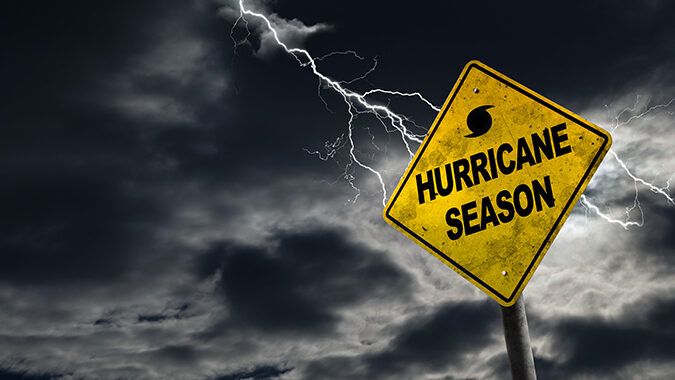September is National Preparedness Month, a reminder for businesses and families to be aware of the importance of preparing for disasters and emergencies that could strike at any time.
The federal Emergency Management Agency (FEMA) urges people to know how to get emergency alerts, and where to go if evacuations became necessary. FEMA’s website, ready.gov/business, offers free toolkits for businesses to help them prepare in advance for a wide range of emergencies, including hurricanes, flooding, power outages and more.
The IRS says individuals, families, organizations, and businesses can be prepared by securing and duplicating essential tax and financial documents and creating lists of property. In the aftermath of a disaster, having updated documents and other information readily available can help victims apply for federal assistance.
Taxpayers should keep critical original documents inside waterproof containers in a secure space. These include tax returns, birth certificates, deeds, titles, insurance policies and other similarly important items. In addition, consider having a relative, friend or other trusted person retain duplicate copies of these documents at a location outside the potentially impacted disaster area, or scan documents into a digital file format in a cloud-based storage application.
Employers using payroll service providers should check if their provider has a fiduciary bond in place to protect the employer against a possible default by the payroll provider after a disaster. More disaster tips for businesses are available on the IRS website.
Although New Jersey hasn’t had a major hurricane yet this season, PSE&G, the state’s largest utility company, is reminding customers about the importance of having a plan for disasters and emergencies.
“We encourage our customers to think about this year’s National Preparedness Month theme, ‘A Lasting Legacy,’ because the life you’ve built is worth protecting,” said Paul Toscarelli, senior director, emergency preparedness. “Safety is and has always been our top priority for our customers and employees.”
PSE&G’s ongoing system improvements and enhancements to the grid help provide excellent service to customers and make its systems more resilient to increasingly severe storms. Tropical Depression Ida in 2021 brought considerable devastation to New Jersey – however, the impacts would have been much worse without those investments.
PSEG offers these tips for preparing for severe storms and other emergencies:
- Have a battery-powered radio and fresh batteries.
- Check supplies of flashlights, blankets, nonperishable food and bottled water.
- Create an emergency communications plan.
- Develop an evacuation plan.
- Charge cell phones, tablets and other mobile devices.
- Make sure to have cash available. Banks may be closed or inaccessible after a storm.
- Fill up your vehicle’s fuel tank.
- Bring in unsecured objects and furniture from patios and balconies.
- Compile a list of emergency phone numbers, including PSE&G Customer Service: 1-800-436-PSEG (7734).
- Discuss storm and lightning safety with your family. Visit https://nj.pseg.com/safetyandreliability/stormsafety for safety tips.
- Follow PSE&G on Facebook and Twitter for updates before, during and after the storm.
- Downed wires should always be considered “live.” Stay at least 30 feet away from downed wires, and don’t go near the pole or anything touching the line. Immediately contact PSE&G, at 1-800-436-PSEG (7734) via the company’s mobile app or website to report downed wires and dial 911 if an immediate hazard exists.
- To prevent carbon monoxide poisoning, do not run any gasoline-powered generators in a garage or any other enclosed space.
- Individuals on life-sustaining medical equipment should have a backup plan in case of power loss. Alert PSE&G in advance and notify your local police and fire departments. For more information, visit pseg.com/life.
- Download the PSE&G mobile app to report outages and receive information on restoration times, crew locations and more.
- Register for MyAlerts to receive text notifications at com/outagecenter.
- Report an outage and receive status updates by texting OUT to 4PSEG (47734).
- Visit PSE&G’s Outage Map for the latest in outage info, restoration times and crew locations across New Jersey at com/outagecenter.
- To report an outage by phone, call PSE&G at 1-800-436-PSEG (7734) or use the web chat feature.




